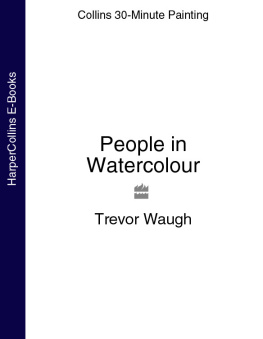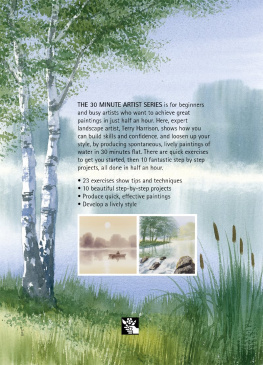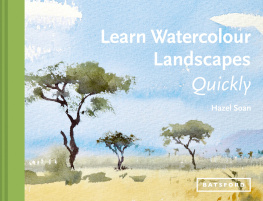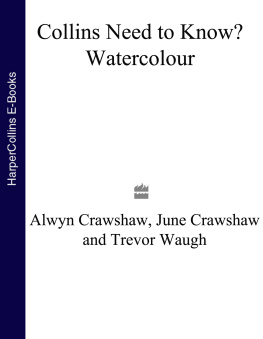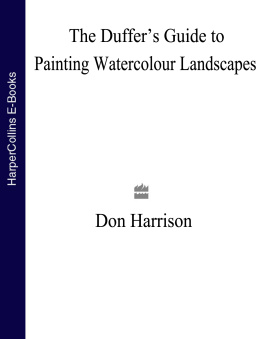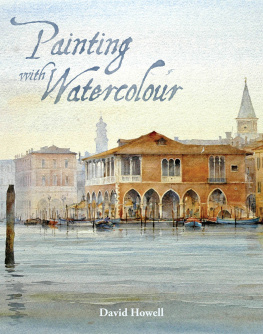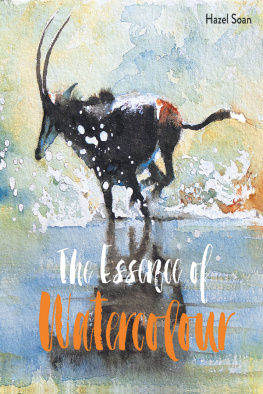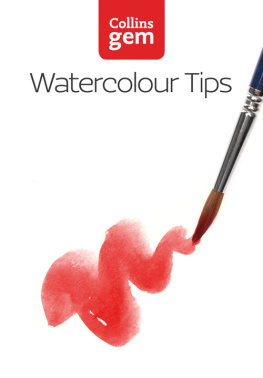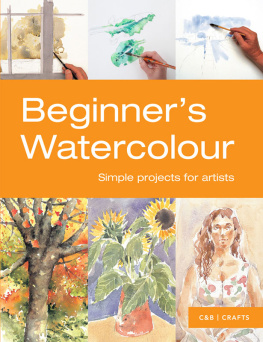Watercolour Painting
Made Simple
Vol.2
by
Steven Cronin
Contents
Introduction
Materials
Step by Step Watercolours
Morning Stroll
Village Road
The Lakes
Lakeside
Sutton Park
Ogwen Valley
Woodland Path
Credits
Introduction
So why watercolour and not another medium?
I found watercolours the easiest entry into the world of painting. The materials are cheaper for a start, an important consideration when you're standing in an art store staring at countless shelves of supplies all vying for your attention.
Though I advocate the purchase of cheaper materials on my YouTube channel there's some real rubbish amongst the genuine bargains that should never see the light of day and
don't deserve a place on the shelves.
I've see some brushes in particular that would have put me off painting before I'd even started so it's important to have some idea of what you're looking for.
You need to give yourself a chance and I'll go through my materials in the next chapter.
As with all mediums, success with watercolours takes practise and the more you practise the easier it gets. But the question remains, why watercolour and not oils or acrylics?
I tried oils a few years back. I bought the Bob Ross starter kit and loved it. Oil painting is very rewarding and one day I'd like to give it another go but the main
difference with watercolour was the mess.
With watercolours I can get dirty! I can scrape my fingernails into the paper to create tree trunks and branches. I can scrub my fingers and knuckles smudging the paint whilst trying to create new effects all in the knowledge I can go to the sink and be clean again in just seconds!
With oils and acrylics I cannot use parts of my own body as tools and it just feels different. Only using man made tools makes me feel a little more distant from the painting than when I'm using watercolours.
Why don't I use artist grade paints?
I've been asked several times in the past why I choose student paints and not artist grade. After all quality paint can only make things easier right?
viewer so they can see exactly what is achievable.
Besides, better quality paint doesn't necessary equate to better quality paintings. I firmly believe the most important element in all of this is the techniques that are learnt and applied and those come with practise, regardless of whichever materials you choose to buy.
I don't want any viewer or reader to feel any of these tutorials are out of their range because they are using inferior equipment to me.
How long does it take to learn watercolours?
Unfortunately, as with most things in life, success
Whilst true, I think it's important that anyone watching my videos or reading this book can feel that they themselves can achieve or at least get close to the standard of paintings in the tutorials.
It's not realistic to expect beginners to buy artist grade materials and therefore I think it's important that I use the same materials as the
doesn't happen overnight and requires plenty of practise and dedication to the task in hand.
Personally I think this is the one aspect where watercolours can appear more difficult than other mediums. Due to the nature of the medium, many beginners often use too much water resulting in paintings that appear washed out and lacking in
colour saturation.
Oils and acrylics tend to go on thicker so the effects are more immediate when first starting out but watercolours less so.
One important aspect that needs to be learned initially is getting the balance of water to paint mix ratios correct and this will come with practise.
The more paint and less water then the stronger the colour saturation and vice versa. Personally I never have any water swishing around on my palette. I can always hold my palette upside down and nothing will fall out.
But there are many styles and techniques and
and blade of grass.
I wanted to develop a fast and loose impressionistic style but all the early artists I watched painted in a way that just wasn't for me. It just looked too slow and tedious and I couldn't see me sticking with it.
Then I discovered Ron Ranson and instantly knew that was how I wanted to paint. His technique mesmerised me and ever since watching that first painting demonstration of his I've been trying to emulate his courage and confidence at the easel.
whether you choose to follow mine or evolve your own, the tutorials and chapters in this book are within the capabilities of one and all.
Evolving your own style
It may seem difficult to believe when you're first starting out in watercolour but eventually you will learn and develop your own style and technique that will differentiate you from other artists and help your work stand out from the crowd.
When I first started painting I knew I would never have the patience to sit at an easel for hours working on each painting for days on end brushing in every leaf
Bob Ross was another joy to watch. Although he used oils, I've tried to blend his methods with those of Ron Ranson to evolve a style of my own.
Frank Clarke was the other major influence on my work and probably the most natural in front of the camera. Personally I found him the best at teaching from scratch. His methods were extremely useful in helping me understand the basics of painting and composition.
It may seem daunting when you first pick up the brush but with practise and commitment you too can achieve things
you wouldn't have dreamed possible.
I try and paint one picture a day to keep improving and developing my technique. I appreciate this may not be possible for those that like to spend a little longer on their work.
I paint quick impressions that often take as little as twenty minutes but for those spending longer on their art try breaking it down into smaller sessions and doing a little each day.
Next page

